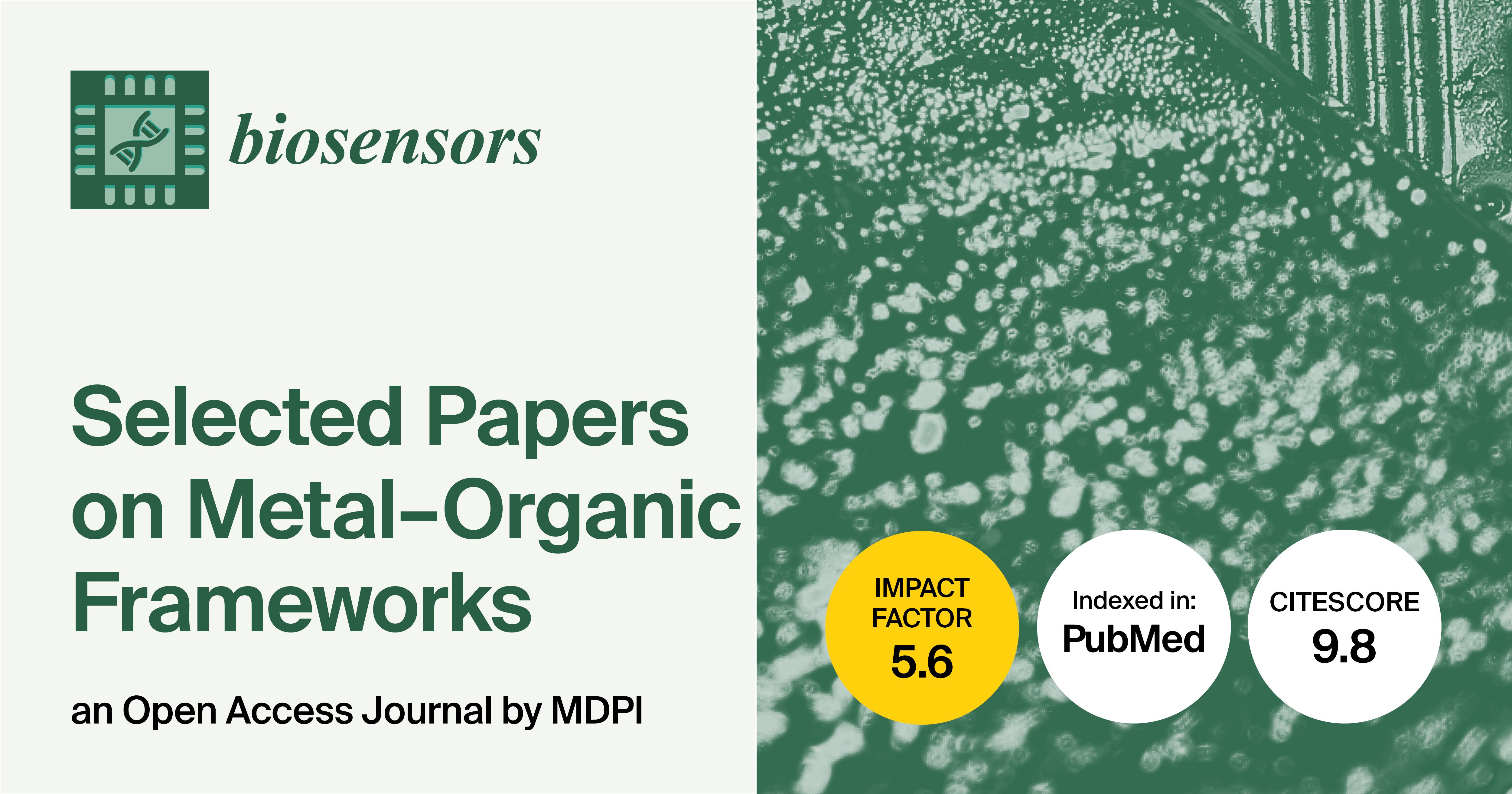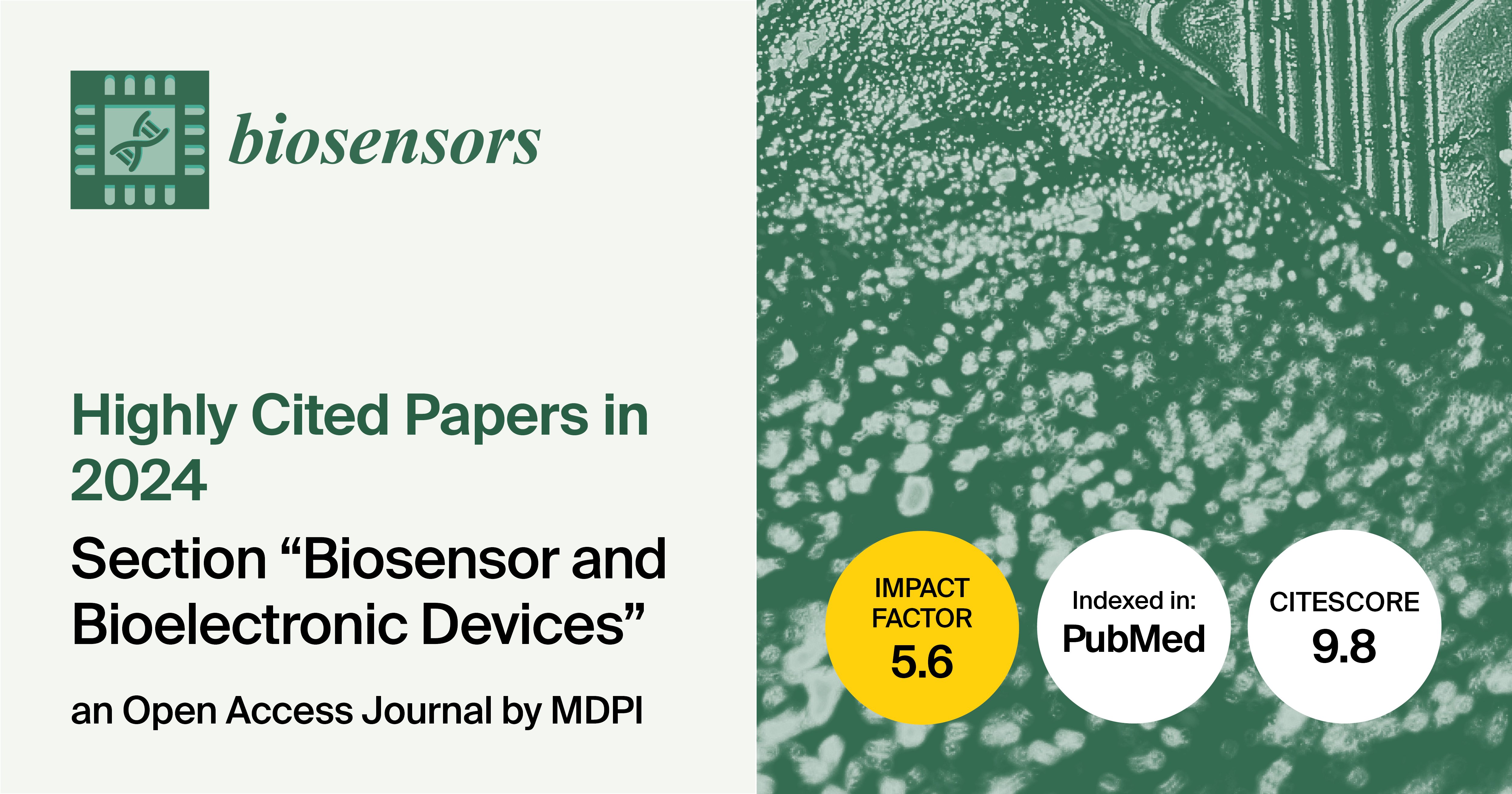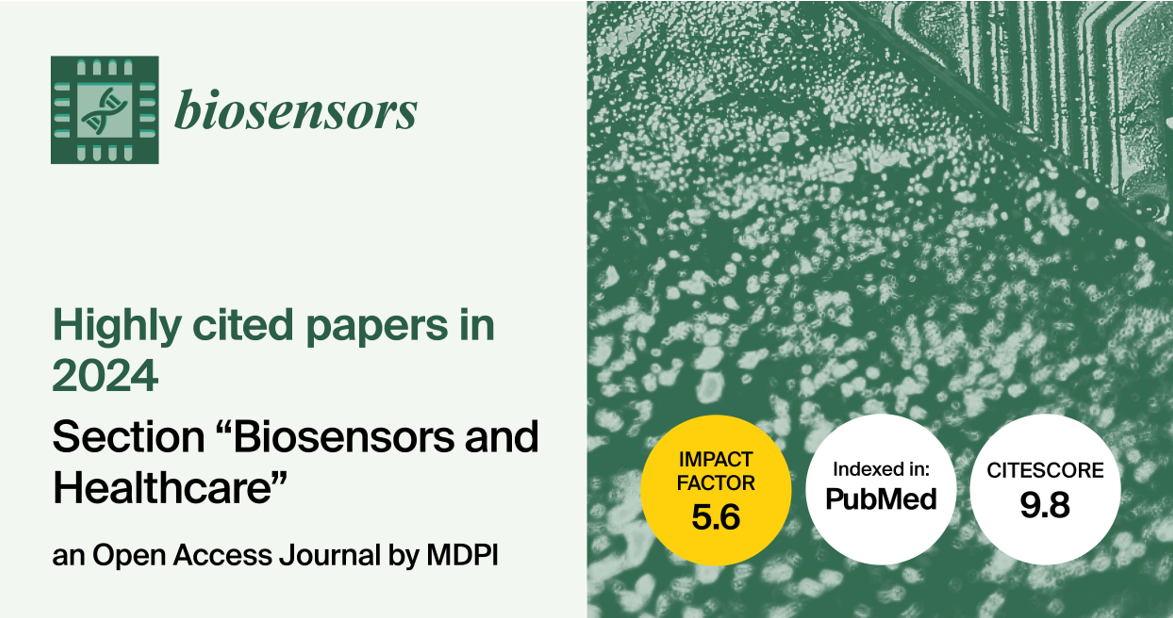- 5.6Impact Factor
- 9.8CiteScore
- 21 daysTime to First Decision
News & Conferences
Latest News & Announcements
Latest Conferences
Propose a Conference Collaboration
Promote and publicise your upcoming conference with MDPI.
All News & Conferences
News & Announcements
Meet Us at the 12th Annual Innovations in Large-Area Electronics Conference (innoLAE 2026), 17–19 February 2026, Cambridge, UK
12 January 2026
News & Announcements
MDPI’s Newly Launched Journals in December 2025
9 January 2026
News & Announcements
Biosensors | Highly Cited Papers in 2024 in the “Optical and Photonic Biosensors” Section
15 December 2025
News & Announcements
Article Layout and Template Revised for Future Volumes
11 December 2025
News & Announcements
Biosensors | Highly Cited Papers in 2024 in the “Biosensor Materials” Section
11 November 2025
News & Announcements
MDPI Launches the Michele Parrinello Award for Pioneering Contributions in Computational Physical Science
6 November 2025
News & Announcements
MDPI INSIGHTS: The CEO's Letter #28 - WSF11, Nobel Laureates, Proofig AI, Romania Summit, STM and FBF
4 November 2025
News & Announcements
Biosensors | Selected Papers on Metal–Organic Frameworks
30 October 2025
News & Announcements
Biosensors | Highly Cited Papers in 2024 in the “Biosensor and Bioelectronic Devices” Section
23 October 2025
News & Announcements
Biosensors | Highly Cited Papers in 2024 in the “Biosensors and Healthcare” Section
20 October 2025
of 25













